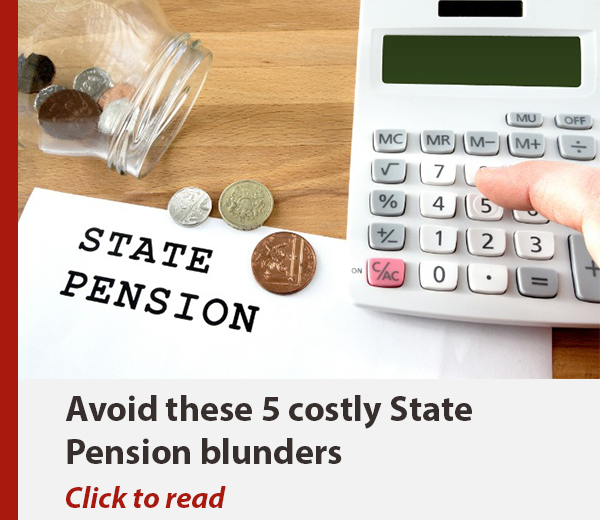Managing your finances: 6 signs you're heading for money trouble

From having an interest-only mortgage to not setting enough aside for the future, here are six situations that could lead to financial disaster down the road.
There are always decisions to make when it comes to managing your money.
However, a few times when choosing the wrong path could result in you being financially punished in the future.
Here are six situations that could lead to financial disaster and how you can avoid them.
Problem: you have an interest-only mortgage
Consequence:
While there's nothing wrong with interest-only mortgages, the fact is that the monthly payments being made won't be clearing any of the actual debt taken on to purchase the house. They will only be covering the interest payments.
If you hope the property’s value will rise enough to clear the outstanding debt and leave you with a handsome profit, that’s a risky strategy.
There are no guarantees when it comes to house price movements.
You may even face the nightmare scenario of a property market crash occuring which means your house is actually worth less than you paid for it.
Either way, an interest-only mortgage means you'll still need to clear the original debt in the future – or face having your home repossessed.
Solution:
Consider switching to a repayment mortgage then at least you know the total amount borrowed is also being reduced each month.
Alternatively, make sure you’re saving money in a separate account to pay off the outstanding debt at the end of the term.
As always when it comes to savings, it pays to start as early as possible and make sure your money is earning a rate of interest that at the very least beats inflation.
You must also keep an eye on this savings pot to ensure you're on track to clear the property debt in the future.
Problem: holding too much in low-risk investments
Consequence:
Taking risks can be scary. After all, no one wants to lose everything they’ve managed to save, so that's why it’s tempting to only put your money into very low-risk investments.
However, if your investments are earning minimal amounts – particularly if they’re not beating inflation – then you could be storing up problems for the future.
For example, if you need your money to earn an average return of 7%-a-year to cover the costs of your child’s education, you may be left with a major shortfall if it’s only been earning 4%.
Solution:
You need to be clear about your financial goals – and seek advice as to whether they’re likely to be attainable given your current plan for saving and investing.
It may be the case that you need to put a percentage of your overall portfolio in assets that can offer a potentially higher reward, in exchange for the taking of more risk.
As an aside, unless your savings and investments are at least keeping up with the rate of inflation, then the value of your money will be declining.
Problem: mortgage running into retirement
Consequence:
There’s been an increase in ultra-long mortgages with figures showing more than a million policies taken out in the last three years will run past the borrower’s state pension age.
Having a mortgage in retirement means costs are much higher. According to Sarah Coles at Hargreaves Lansdown, this means you may not be in control of when you stop work.
“Even if you manage to pay the mortgage before retirement, if you are forced to pay for longer, you could miss a key window of funding your pension,” she said.
Solution:
You need to increase your savings. Therefore, if you’re set to repay your mortgage in retirement you may consider using existing savings and investments to pay off the loan.
For many people, working later in life will form part of the solution, but they’ll have a Plan B, according to Coles.
“This could include using equity release to free up a lump sum to repay your mortgage,” she said.
“However, it’s important to understand the full cost.”
Problem: you haven't increased your pension contributions
Consequence:
It will not come as a surprise to anyone that saving nothing at all for retirement is setting them up for financial trouble down the road.
However, many people might mistakenly think their retirement planning is on track thanks to automatic enrolment.
The system requires all workers to contribute 5% of their salary into a pension while their employer kicks in a further 3%.
While there's no question it's improved the nation's saving habits, the sad reality is that it's unlikely to secure you a comfortable retirement on its own.
Solution:
Stop doing the bare minimum! Yes, the cost of living crisis is still hammering our finances, but any extra money you can spare now could be worth far more to you in the future.
Problem: Not clearing your debts
Consequence:
If you get too used to servicing credit card debt by paying off the monthly minimum you could end up in serious financial problems.
Many credit card companies now have an APR of around 24.9% – and the rate of many others is substantially higher – so it won’t take long for your debt to spiral out of control.
Also, if your credit card debt soaks up too much of your income, it makes it much more difficult to put money aside for the future, including into your pension.
Solution:
You need to get a proper budget in place to limit your outgoings. The next task is to reduce the debt burden as quickly as possible.
It may be worth taking out a low-cost loan in order to clear the debt but it's advisable to seek financial advice before making such a decision.
Problem: Not enough life insurance
Consequence:
No one likes paying for insurance? It’s usually seen as a legal requirement or necessary evil, but life insurance is worth it, according to Sarah Coles, head of personal finance at Hargreaves Lansdown.
She pointed out that the latest HL Savings & Resilience Barometer revealed that 14 million households have at least one dependent, but 57% of them don’t have enough life cover.
“It means that if the worst was to happen to a parent, there wouldn’t be enough protection in place to pay off the mortgage and enable those left behind to care for children to 18 years old,” she said.
Solution
The obvious solution is to get a life insurance policy in place. They are available direct from insurers or via brokers so shop around to see what kind of policy best suits your circumstances.
Most Recent
Comments
Be the first to comment
Do you want to comment on this article? You need to be signed in for this feature









